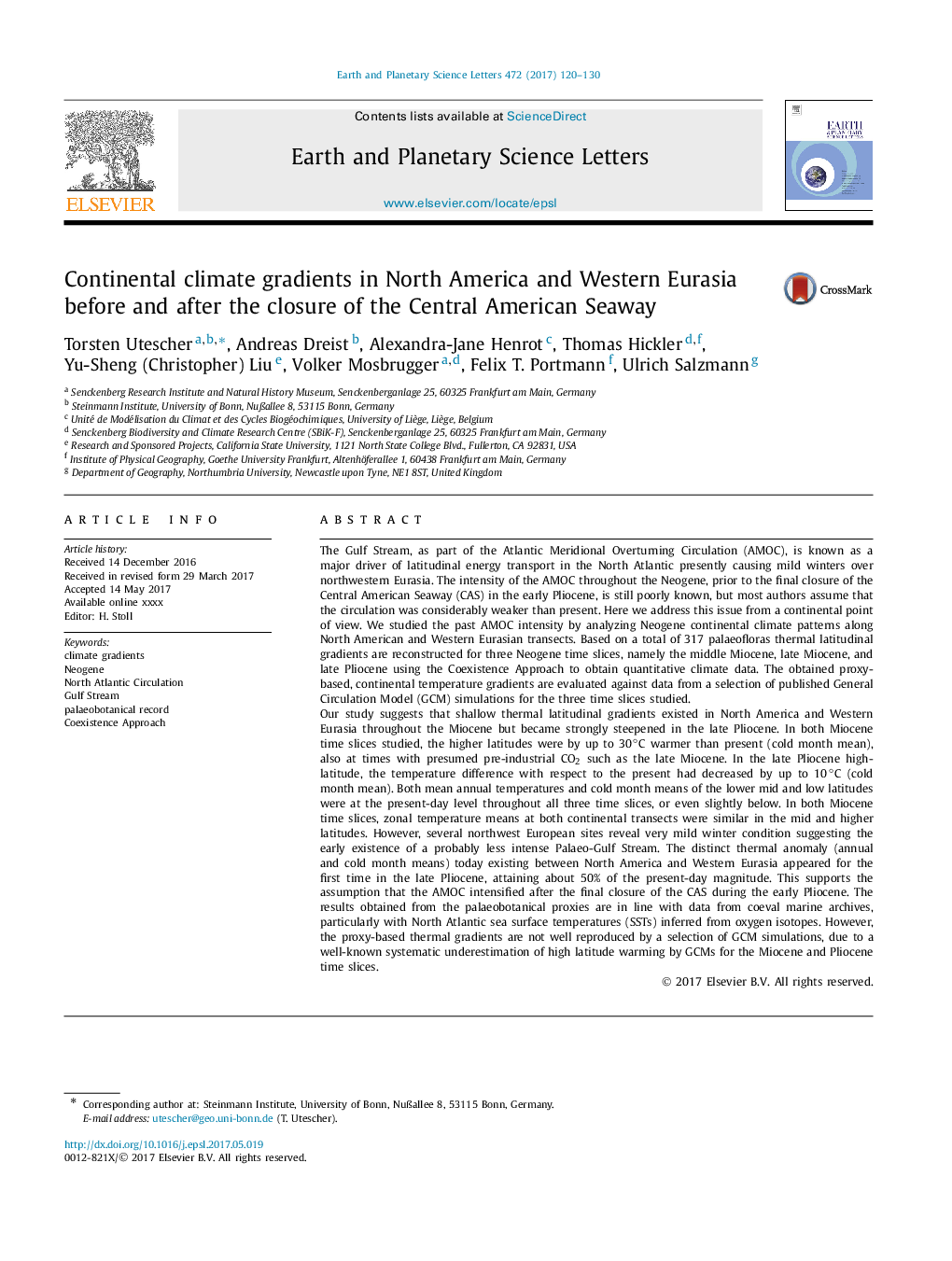| Article ID | Journal | Published Year | Pages | File Type |
|---|---|---|---|---|
| 5779504 | Earth and Planetary Science Letters | 2017 | 11 Pages |
Abstract
Our study suggests that shallow thermal latitudinal gradients existed in North America and Western Eurasia throughout the Miocene but became strongly steepened in the late Pliocene. In both Miocene time slices studied, the higher latitudes were by up to 30â°C warmer than present (cold month mean), also at times with presumed pre-industrial CO2 such as the late Miocene. In the late Pliocene high-latitude, the temperature difference with respect to the present had decreased by up to 10â°C (cold month mean). Both mean annual temperatures and cold month means of the lower mid and low latitudes were at the present-day level throughout all three time slices, or even slightly below. In both Miocene time slices, zonal temperature means at both continental transects were similar in the mid and higher latitudes. However, several northwest European sites reveal very mild winter condition suggesting the early existence of a probably less intense Palaeo-Gulf Stream. The distinct thermal anomaly (annual and cold month means) today existing between North America and Western Eurasia appeared for the first time in the late Pliocene, attaining about 50% of the present-day magnitude. This supports the assumption that the AMOC intensified after the final closure of the CAS during the early Pliocene. The results obtained from the palaeobotanical proxies are in line with data from coeval marine archives, particularly with North Atlantic sea surface temperatures (SSTs) inferred from oxygen isotopes. However, the proxy-based thermal gradients are not well reproduced by a selection of GCM simulations, due to a well-known systematic underestimation of high latitude warming by GCMs for the Miocene and Pliocene time slices.
Related Topics
Physical Sciences and Engineering
Earth and Planetary Sciences
Earth and Planetary Sciences (General)
Authors
Torsten Utescher, Andreas Dreist, Alexandra-Jane Henrot, Thomas Hickler, Yu-Sheng (Christopher) Liu, Volker Mosbrugger, Felix T. Portmann, Ulrich Salzmann,
